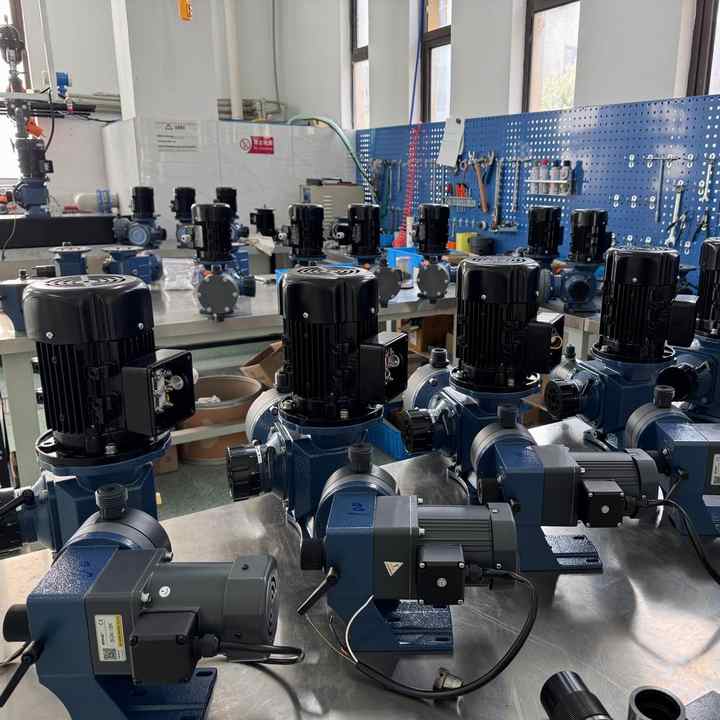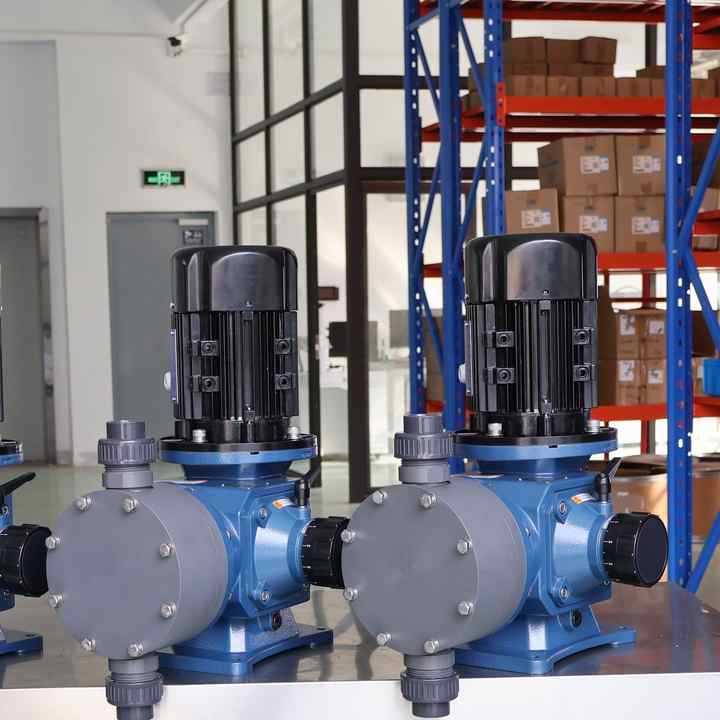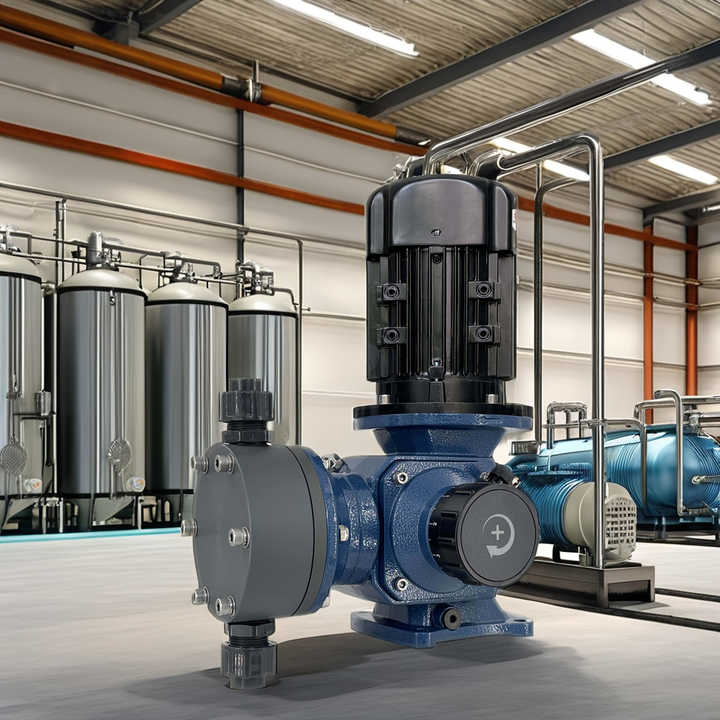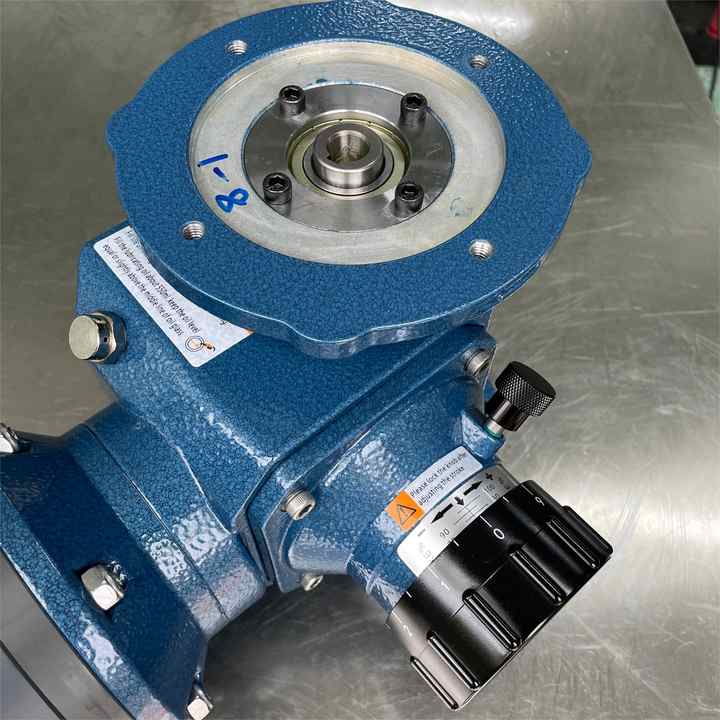Guide to Choosing a Dosaki Metering Pump
How to Choose and Use a Chemical Metering Pump
Is selecting and using a chemical metering pump difficult? What factors should be considered to ensure the best product and the highest efficiency in liquid pumping? Let’s explore these aspects in this guide!
Steps to Choose a Metering Pump
To select the most suitable metering pump for your application, follow these three steps:
- Determine the required flow rate for your application in liters per hour (l/h).
- Identify the necessary pump pressure (bar).
- Specify the power supply: single-phase 220V or three-phase 380V.
If you are unsure about the right pump for your needs, contact Vimex-PUMPS for expert consultation.
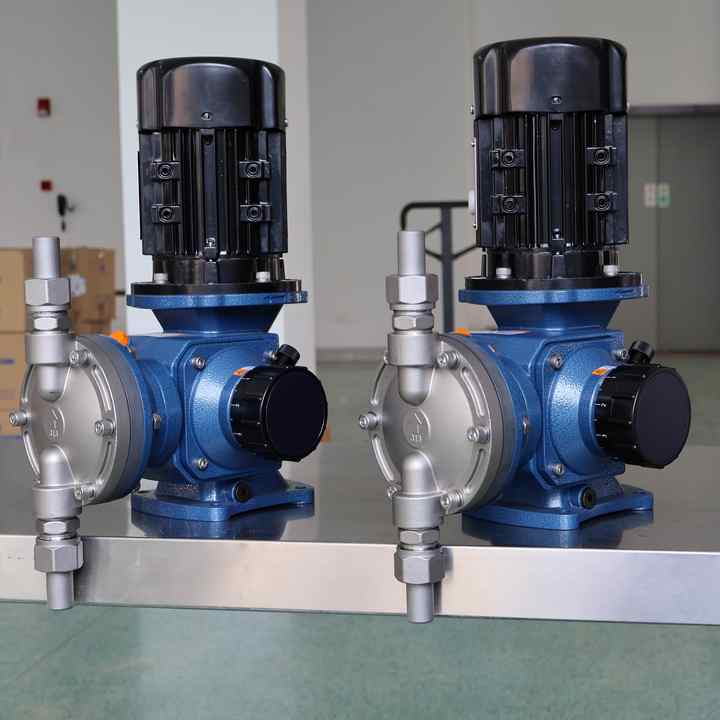
Selecting a Chemical Metering Pump
A chemical metering pump is an industrial pump designed for low flow rates and low power consumption, yet it is highly versatile with many brands available on the market. Choosing the right model depends on various factors, including usage requirements, liquid characteristics, installation location, and environmental conditions.
Key Factors to Consider When Choosing a Chemical Metering Pump:
- Pump Material: This includes the pump chamber, shaft or diaphragm material, suction and discharge ports, seals, etc. Select materials that are compatible with the chemical’s corrosion level.
- Flow Rate and Pressure: The desired flow rate influences the pump’s required power and pressure. Manufacturers recommend selecting a pump with a maximum expected capacity of 85–90% of its rated output for optimal flow control.
- Liquid Characteristics: Factors such as viscosity, corrosiveness, and homogeneity must be assessed before selecting a pump.
- Operating Environment: Consider installation location, temperature, and humidity, as these affect pump performance.
- Control Method and Pump Type: Understanding the pump classification helps determine the best fit for your needs.
- Brand and Supplier: Choose a reputable supplier offering genuine products with official warranties and clear policies.
- Additional Components: Consider suction/discharge pipe size, chemical suction accessories, couplings, valves, and other related parts.
Choosing a Metering Pump Based on Pump Classification
Chemical metering pumps are categorized into three main types:
- Diaphragm Metering Pumps: Ideal for precise dosing applications, these pumps allow flow rate adjustments and are commonly used in clean water, sludge, wastewater treatment, oil and gas, chemical industries, marine applications, power plants, and paper mills.
Example: Seko Diaphragm Metering Pump
- Piston Metering Pumps: Durable and best suited for non-abrasive liquids without solid particles. These pumps are highly effective in high-pressure systems.
Example: Injecta TP Piston Metering Pump
- Hydraulic Metering Pumps: Suitable for handling abrasive liquids, suspensions, and high-pressure systems.
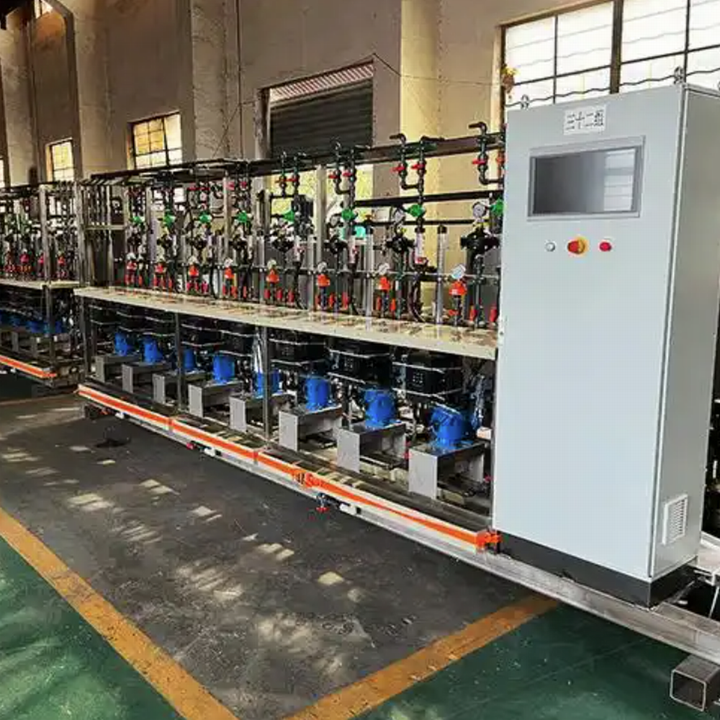
Key Criteria When Purchasing a Chemical Metering Pump
- Choose an authentic product from a reliable supplier with official warranties and comprehensive documentation.
- Select a supplier with readily available stock.
- Opt for a provider that offers installation, usage support, warranty, and maintenance services.
Calculating Flow Rate to Select the Right Metering Pump
Step 1: Calculate the required metering pump flow rate using the formula:
Q chemical × C origin chemical = Q water × C chemical in water
Step 2: Based on the flow rate calculation, identify the appropriate model with suitable pressure, power, and frequency.
Step 3: Adjust the metering pump to achieve precise flow rates.
Effective Use of a Chemical Metering Pump
Proper use of a metering pump ensures high efficiency and minimizes operational issues. Follow these steps:
- Select the right metering pump based on your needs.
- Install the pump in a secure, stable location near the liquid source for convenience and safety.
- Check the pump’s rotation direction before operation.
- Inspect all pump components, including power supply, couplings, valves, and seals.
- Start the pump and monitor its performance.
- Conduct regular maintenance and cleaning.
- Address issues promptly and replace worn-out components as needed.
Important Considerations When Using a Chemical Metering Pump
- Never operate the pump dry, as running without liquid can cause severe damage.
- Metering pumps are self-priming.
- Choose the correct pump model based on precise calculations before purchasing.
- While metering pumps are affordable, prioritizing quality ensures better performance and longevity.
For detailed consultation on selecting and using chemical metering pumps, contact Vimex today for expert support!




